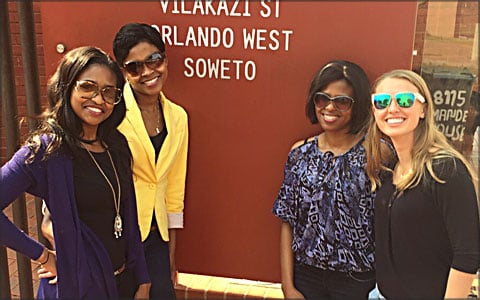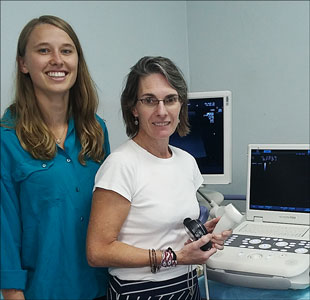When radiologist Susan Harvey, director of breast imaging at Johns Hopkins Medicine, was looking for ways to improve access to breast cancer diagnostics and therapeutics in South Africa, she turned to the Johns Hopkins Center for Bioengineering Innovation and Design, which is emerging as a leader in training the next generation of biomedical engineers.
Monica Rex, a senior biomedical engineering and Spanish major from Orlando, Florida, and her five-member student design team jumped on the idea. Within a month of meeting last summer, Rex traveled with Harvey to Johannesburg and a rural area called Hoedspruit to investigate the needs firsthand. “It was incredible … to have the opportunity to travel to see the problems surrounding these communities and really see opportunities where our team could step in and engineer a solution,” says Rex.
What they discovered is “there’s a kind of chicken-and-egg problem with breast cancer,” says Nicholas Durr, the director of undergraduate programs for CBID, which operates within the Department of Biomedical Engineering and is shared by the schools of Medicine and Engineering.
There are not a lot of therapeutic options for those diagnosed because treatment is generally only offered in cities and it’s too hard and expensive for those in rural areas to travel. “And because there are no good treatment options for many,” Durr adds, “there’s also no good incentive to provide diagnosis, because if you can’t do anything once you find the breast cancer, what’s the point?”
The standard treatments used in South Africa are mastectomy and lumpectomy, which require a sterile environment and the assistance of an anesthesiologist. As such, they are only offered at regional hospitals, Rex says.


